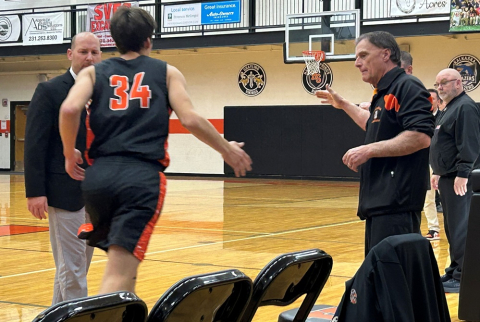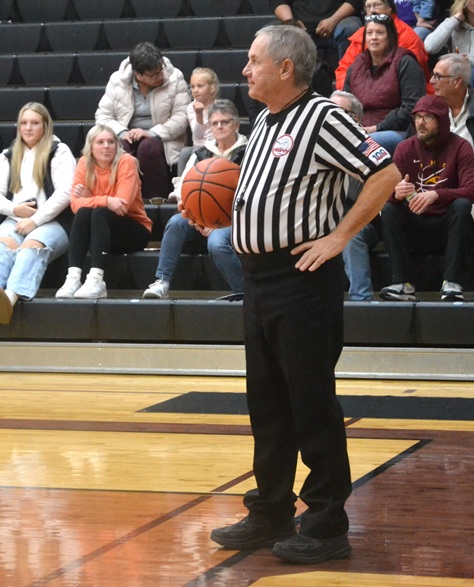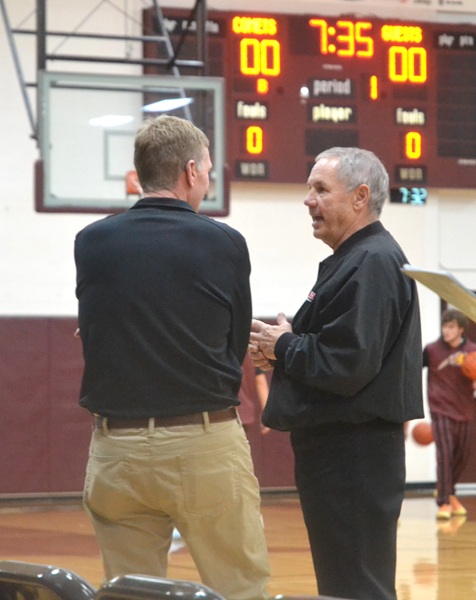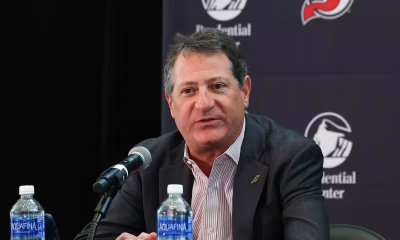Rec Sports
Where to build? – NowKalamazoo

Things to do in Kalamazoo
Sponsored by

Check out events by category:
KIA Free Admission and Extended Hours Thursdays – Kalamazoo Institute of Arts
5/22, 12:00 AM
Roof Sit – Corner of Westnedge and Milham behind Helzburg Diamonds
5/22, 8:00 AM
AKC Apple Blossom Cluster Dog Show – Kalamazoo County Expo Center
5/22, 8:00 AM
Kalamazoo (and Portage) In Bloom: Community Planting Days – Various
5/22, 9:00 AM
Yoga-Hatha Vinyasa with Cathy Tucci – Richland Area Community Center
5/22, 9:00 AM
Wallace & Gromit and Shaun the Sheep: Sheer Genius! Exhibit – Kalamazoo Valley Museum
5/22, 10:00 AM
Swingin’ with Susan – Richland Area Community Center
5/22, 10:30 AM
KRESA Career Connect Campus Grand Opening Celebration – KRESA Career Connect Campus
5/22, 4:00 PM
UV Reactive Bead Lizard – Kalamazoo Public Library, Central
5/22, 4:00 PM
Read to Kenny and Rosie – Kalamazoo Public Library, Oshtemo
5/22, 4:30 PM
Website and Web Marketing Workshop – Kzoo Makers
5/22, 5:30 PM
Beginning Farmer Workshops (Free) – KVCC Food Innovation Center
5/22, 5:30 PM
Beginning Farmer Workshops: Urban Agriculture and Policy – KVCC Food Innovation Center
5/22, 5:30 PM
League of Extraordinary Explorers – Kalamazoo Public Library, Central
5/22, 6:00 PM
Turtles and Watercolors Workshop – Kellogg Bird Sanctuary
5/22, 6:00 PM
Free Community Yoga at Move With Joy – Move with Joy
5/22, 6:00 PM
Kalamazoo Trivia Night – Kalamazoo Institute of Arts
5/22, 6:00 PM
Jerico Native Garden Work Day – Jerico
5/22, 6:00 PM
Paradise: Black Resorts in Michigan – Legacy: Cultural Wellness
5/22, 6:00 PM
600 Cookbook Dinner Series: Anthony Bourdain, Appetites – 600 Kitchen
5/22, 6:00 PM
Book Discussion: Donald Lystra’s “Searching for Van Gogh” Pre-Michigan Notable Book Author Visit – Vicksburg District Library
5/22, 6:00 PM
Pedal Downtown Shop Ride – Pedal Bicycle, Kalamazoo
5/22, 6:15 PM
Rock Out for a Cause with Rock Rx – Vickers Lakeside Tavern
5/22, 6:30 PM
Triple Threat Trivia Live with FLOTUS – Presidential Brewing Co.
5/22, 6:30 PM
Local Fighting Games at Odyssey – Odyssey Games
5/22, 6:30 PM
Music Bingo @ Louie’s Trophy House – Louie’s Trophy House
5/22, 7:00 PM
Wax Wings Trivia Night – Wax Wings Brewing Co.
5/22, 7:00 PM
How Media and News Literacy Can Help Navigate Today’s Chaos – Crawlspace Theatre
5/22, 7:00 PM
Film Screening: No Other Land (2024) – Dormouse Theatre
5/22, 7:30 PM
LIVE at Dabney with Matthew Fries – Dabney & Co.
5/22, 7:30 PM
Music Bingo – Harvey’s on the Mall
5/22, 8:00 PM
Jon Spencer w/ M.Sord & Sharq – Bell’s Eccentric Cafe
5/22, 8:00 PM
AKC Apple Blossom Cluster Dog Show – Kalamazoo County Expo Center
5/23, 8:00 AM
Kalamazoo (and Portage) In Bloom: Community Planting Days – Various
5/23, 9:00 AM
Pantry on Wheels: Kalamazoo Mobile Markets Food Distribution – Various
5/23, 10:00 AM
Comstock Township Library Writers – Comstock Township Library
5/23, 10:00 AM
Wallace & Gromit and Shaun the Sheep: Sheer Genius! Exhibit – Kalamazoo Valley Museum
5/23, 10:00 AM
Senior Breakfast – Kalamazoo Public Library, Eastwood
5/23, 10:30 AM
Vicksburg Farmers’ Market – Vicksburg Historic Village
5/23, 2:00 PM
May Friday at the Flats – Celery Flats
5/23, 5:00 PM
Owen McDaniel – The Backyard of Kalamazoo
5/23, 5:30 PM
Timeless Hippie Experience: A Journey Through Time – AZO Venue, Lounge & Grill
5/23, 6:00 PM
Bike Night with His Boy Elroy – The Dock at Bayview
5/23, 6:00 PM
LFG Music Bingo Fridays – LFG Gaming Bar
5/23, 7:00 PM
Ray Bro, Shai-Li, & Hopie Jo – The Clover Room
5/23, 7:00 PM
Canned Champagne & Daddy’s Boys Improv Comedy – Crawlspace Theatre
5/23, 7:30 PM
Film Screening: No Other Land (2024) – Dormouse Theatre
5/23, 7:30 PM
Kanin Wren Presents the Ultimate Taylor Swift Experience – Bell’s Eccentric Cafe
5/23, 8:00 PM
Extreme Karaoke – Shakespeare’s Pub
5/23, 8:30 PM
LIVE at Dabney with SaxFifth – Dabney & Co.
5/23, 8:30 PM
See more upcoming events
Do you have an event you think we should list? Submit it
Rec Sports
Tahoe-Truckee Unified School District caught up in a dispute over transgender athlete policies

SACRAMENTO, Calif. (AP) — A Lake Tahoe school district is caught between California and Nevada’s competing policies on transgender student athletes, a dispute that’s poised to reorder where the district’s students compete.
High schools in California’s Tahoe-Truckee Unified School District, set in a mountainous, snow-prone area near the border with Nevada, have for decades competed in the Nevada Interscholastic Activities Association, or NIAA. That has allowed sports teams to avoid making frequent and potentially hazardous trips in poor winter weather to competitions farther to the west, district officials say.
But the Nevada association voted in April to require students in sex-segregated sports programs to play on teams that align with their sex assigned at birth — a departure from a previous approach allowing individual schools to set their own standards. The move raised questions for how the Tahoe-Truckee district would remain in the Nevada association while following California law, which says students can play on teams consistent with their gender identity.
Now, California’s Department of Education is requiring the district to join the California Interscholastic Federation, or CIF, by the start of next school year.
District Superintendent Kerstin Kramer said at a school board meeting this week the demand puts the district in a difficult position.
“No matter which authority we’re complying with we are leaving students behind,” she said. “So we have been stuck.”
There are currently no known transgender student athletes competing in high school sports in Tahoe-Truckee Unified, district officials told the education department in a letter. But a former student filed a complaint with the state in June after the board decided to stick with Nevada athletics, Kramer said.
A national debate
The dispute comes amid a nationwide battle over the rights of transgender youth in which states have restricted transgender girls from participating on girls sports teams, barred gender-affirming surgeries for minors and required parents to be notified if a child changes their pronouns at school. At least 24 states have laws barring transgender women and girls from participating in certain sports competitions. Some of the policies have been blocked in court.
Meanwhile, California is fighting the Trump administration in court over transgender athlete policies. President Donald Trump issued an executive order in February aimed at banning transgender women and girls from participating in female athletics. The U.S. Justice Department also sued the California Department of Education in July, alleging its policy allowing transgender girls to compete on girls sports teams violates federal law.
And Democratic Gov. Gavin Newsom, who has signed laws aimed at protecting trans youth, shocked party allies in March when he raised questions on his podcast about the fairness of trans women and girls competing against other female athletes. His office did not comment on the Tahoe-Truckee Unified case, but said Newsom “rejects the right wing’s cynical attempt to weaponize this debate as an excuse to vilify individual kids.”
The state education department said in a statement that all California districts must follow the law regardless of which state’s athletic association they join.
At the Tahoe-Truckee school board meeting this week, some parents and one student said they opposed allowing trans girls to participate on girls teams.
“I don’t see how it would be fair for female athletes to compete against a biological male because they’re stronger, they’re taller, they’re faster,” said Ava Cockrum, a Truckee High School student on the track and field team. “It’s just not fair.”
But Beth Curtis, a civil rights attorney whose children attended schools in Tahoe-Truckee Unified, said the district should fight NIAA from implementing its trans student athlete policy as violating the Nevada Constitution.
Asking for more time
The district has drafted a plan to transition to the California federation by the 2028-2029 school year after state officials ordered it to take action. It’s awaiting the education department’s response.
Curtis doesn’t think the state will allow the district to delay joining CIF, the California federation, another two years, noting the education department is vigorously defending its law against the Trump administration: “They’re not going to fight to uphold the law and say to you at the same time, ‘Okay, you can ignore it for two years.’”
Tahoe-Truckee Unified’s two high schools with athletic programs, which are located about 6,000 feet (1,800 meters) in elevation, compete against both California and Nevada teams in nearby mountain towns — and others more distant and closer to sea level. If the district moves to the California federation, Tahoe-Truckee Unified teams may have to travel more often in bad weather across a risky mountain pass — about 7,000 feet (2,100 meters) in elevation above a lake — to reach schools farther from state lines.
Coleville High School, a small California school in the Eastern Sierra near the Nevada border, has also long been a member of the Nevada association, said Heidi Torix, superintendent of the Eastern Sierra Unified School District. The school abides by California law regarding transgender athletes, Torix said.
The school has not been similarly ordered by California to switch where it competes. The California Department of Education did not respond to requests for comment on whether it’s warned any other districts not in the California federation about possible noncompliance with state policy.
State Assemblymember Heather Hadwick, a Republican representing a large region of northern California bordering Nevada, said Tahoe-Truckee Unified shouldn’t be forced to join the CIF.
“I urge California Department of Education and state officials to fully consider the real-world consequences of this decision—not in theory, but on the ground—where weather, geography, and safety matter,” Hadwick said.
Rec Sports
Hospital demolition begins at site of Detroit’s new soccer stadium
Dec. 19, 2025, 4:09 p.m. ET
Detroit — Wrecking crews on Friday started work to transform a long-vacant eyesore on the city’s west side into a 15,000-seat professional soccer stadium that officials hope will spur economic growth and further solidify Detroit’s reputation as a sports mecca.
City officials and leaders with the Detroit City Football Club gathered on a chilly Friday afternoon at the corner of Michigan Avenue and 20th Street, the site of the former Southwest Detroit Hospital, to celebrate a milestone step for the nearly $200 million project.
Rec Sports
‘Scott Hancock Court’ Celebrates JV Coach’s 50 Years Building Up Cheboygan Hoops

Editor’s Note: An extended version of this article appeared originally in the Cadillac News in March. Since then, Allen has been inducted into the Basketball Coaches Association of Michigan’s Hall of Honor in October and is wearing the striped shirt again this basketball season, officially his 50th year.
CADILLAC – Bill Allen’s story is similar to that of many area sports officials, particularly those officials who have been active for many years.
A background in sports, typically playing team sports while growing up, combined with a desire to continue to be involved after high school or college, coupled with an inner urge to be part of the solution – these characteristics find a natural outlet for those brave souls who choose to be officials. and these traits are nearly always part of the make-up of the officials who receive high grades for their efforts and serve capably for many years.
Allen, of Cadillac, would not say this about himself. But he is one of those officials whom coaches are glad to see on the floor because they know they’re getting someone who will be fair and consistent. The same could also be said of Allen when he was umpiring, though he doesn’t work the diamonds anymore.
As Allen can tell you as he enters his 50th year wearing the striped shirt on the hardwood, officiating is a demanding vocation – and it is rewarding at the same time. It requires the right temperament as well as an above-average level of mental and physical fitness, especially as age makes its inevitable demands. It requires the ability to make decisions quickly, sometimes under very stressful conditions. It requires the ability to face criticism, sometimes expressed loudly or very loudly. It requires the ability to be a peacemaker at times and also the willingness not to hold grudges or become petty.
For those like Allen who have what it takes, those who are up to the challenges and the rigors that officiating requires from an individual, there is a deep satisfaction in knowing they are making a positive difference.
“I think that’s a common thread among all the officials, whether it’s basketball or baseball or softball,” Allen said. “You obviously want to do your best, but you want to manage the game in a way that helps it to flow the way it should flow and enables everyone, the players and the coaches and the fans, to get the most out of it.
“It’s an old cliché but it’s true: The best officials are the ones you hardly notice. If you can officiate a game and walk through the crowd afterward and no one recognizes you, then you’ve probably done your job pretty well that game. That’s what every official strives for.
 “You’re never going to get every call right, and you have to be willing to accept that going into it,” he added. “But you know the rules and apply the rules the best you can, you put yourself in the best position to make the calls, especially in basketball, and you call it the way you see it.
“You’re never going to get every call right, and you have to be willing to accept that going into it,” he added. “But you know the rules and apply the rules the best you can, you put yourself in the best position to make the calls, especially in basketball, and you call it the way you see it.
“Are you always right? No. But if you put yourself in the right position and make the call you believe is correct, you can live with that and normally the coaches can too, even if they’re angry about a particular call in the moment.”
Allen, like most officials, was an athlete himself growing up in Traverse City and playing multiple sports for what was then known as Traverse City High School, the largest high school in Michigan in the early 1970s. By his own admission, he wasn’t one of the top stars in basketball and baseball but he was a good, reliable player for his coaches and a dependable teammate who loved the atmosphere of the arena during each season as well as the sense of achievement that the act of competing brought out in him like nothing else.
“I was pretty athletic growing up, but not a great athlete at Traverse City High School,” he said. “I was good enough to make the teams, but I wasn’t what you would call an impact player. A lot of officials have the same kind of background as mine. Maybe we weren’t the greatest players, but we still enjoy sports and we like being part of the action.”
It was during his final two years at Michigan State during the mid-1970s that Allen received his start in officiating.
“In my junior year at Michigan State, one of the fellows I roomed with did assignments for the intramural programs at the college,” he said. “Everything from touch football to basketball to slow-pitch softball. He told me to take the officiating class and he would assign me to games, and that’s how it all started 50 years ago.”
Allen jumped into the world of officiating eagerly with both feet, working a sporting event “nearly every night” at MSU.
“I would go to school during the day, ref at night, and do it again the next day,” he recalled.
“There were so many contests, maybe thousands, that I got to work with a number of other officials. Tim McClelland, who later became a Major League umpire and made the illegal pine tar bat call against George Brett, was a colleague back then. It was a lot of good experience and good mentoring and laid a great foundation for what turned out to be ahead.”
Allen initially earned a degree in criminal justice, graduating from Michigan State University in 1977, and worked in the field of corrections for a period of time before his love of baseball and a sense of personal confidence in his potential to officiate at a higher level prompted him to attend a school for prospective umpires in Daytona Beach, Fla.
That didn’t quite work out, but Allen was not deterred. He changed his career plans from criminal justice to education, and the switch would also lead to abundant opportunities for officiating down the road not just on the baseball and softball diamonds but the basketball court as well.
“When I didn’t get picked (for umpiring), I went back to school to earn my teaching certificate and a graduate degree in history with the goal of becoming a teacher at Cadillac,” he explained. Allen’s wife Sue already was employed as a teacher with the school district.
Bill’s goal at that point was to join Sue as a member of the faculty, as a social studies teacher, and that’s just what happened. Bill served for 26 years in the classroom before retiring along with Sue 12 years ago.
“I viewed Cadillac schools as a great organization to work for as a teacher before I got hired there, and I was right,” he said. “I wouldn’t trade my years at Cadillac for anything. Susie and I both thoroughly enjoyed our years there.”
 In conjunction with teaching, Allen continued to officiate basketball in the winter and baseball in the spring and summer. He umpired a lot of men’s summer league softball games through the years and grew to love in particular working the games under the lights at Cadillac’s Lincoln Field.
In conjunction with teaching, Allen continued to officiate basketball in the winter and baseball in the spring and summer. He umpired a lot of men’s summer league softball games through the years and grew to love in particular working the games under the lights at Cadillac’s Lincoln Field.
He also became a registered official with the MHSAA and has continued in that role, though he decided to hang up his umpire cleats a few years ago.
“I registered with the MHSAA while I was still in Lansing,” he said. “The first place I ever did a sanctioned event was in Perry, Michigan. I had barely enough (umpiring) equipment and I’m sure I looked like a real yahoo out there, but I got through it.”
After coming to Cadillac, Allen met Dave Martin, who was an active official and a fellow teacher at Marion, and Martin became his first “crew chief.”
“They needed some JV officials and I got signed up and was off and running,” Allen recalled. “That’s how you got into it back then. You found a crew and the crew chief assigned you some games, and you were evaluated. As long as they liked you and liked what you were doing, they kept you around.”
Allen expressed admiration and appreciation for Martin and also the late June Helmboldt from Lake City, another crew leader “who had a great perspective on the game.”
Allen served as a crew chief himself for a long time and has built rewarding relationships with fellow officials through the years. He has worked many games with Penny McDonald of Cadillac, another longtime official who has earned much respect for her consistency and quality of work in multiple sports over the decades. Allen, in a reversal of roles, is the one receiving assignments from McDonald these days.
Bill Bartholomew is another longtime officiating partner with whom Allen has worked many games over the years and for whom Allen has great respect. This school year, in fact, marks Bartholomew’s 51st year as an official. There are a few others from northern Michigan who have stood the test of time and have passed the 50-year service milestone, such as Paul Williams of Mesick, Tom Post and Mike Muldowney of Traverse City, Tom Johnson of Gaylord, and Dan Aldrich of Charlevoix. All of these, Allen said, are a credit to the craft of officiating and have earned the respect they receive.
Allen also has fond memories of working frequently through the years with Don Blue of Falmouth and Jill Baker-Cooley of Big Rapids, who was chosen for the MHSAA’s prestigious Vern L. Norris Award in 2018.
“I was there when Don and Julie and Penny all got their start in officiating, and they all found their skill set and became excellent officials,” Allen said.
Bill is included in the 50-year milestone group of basketball officials now that the 2025-26 season is underway. He is pleased that he has been able to maintain his longevity; as to the future, he is ready and willing to keep going.
“As long as I’m healthy and can do it properly, I hope to continue,” said Allen, who remains physically fit, jogging regularly along with activities including downhill skiing in the winters and golf during the warmer months.
“I’ll know when it’s time to step aside. When I can’t see well enough to judge the baseline and need to rely on my partners more than I should, then it’s time to hang up the whistle and let the younger ones take over. I hope that’s not for a while though.”
Mike Dunn is a sportswriter for the Cadillac News and the sports editor of the Missaukee Sentinel weekly. He has won numerous awards through the Michigan Press Association as well as the Michigan Associated Press.
PHOTOS (Top) Cadillac’s Bill Allen, shown here following a varsity girls basketball game in February in Evart, is in his 50th year as an MHSAA registered official. (Middle) Allen waits at the baseline for action to resume. (Below) Allen talks casually with McBain Northern Michigan Christian boys assistant coach Terry Pluger prior to the start of the varsity game with Buckley on Dec. 8. (Photos by Mike Dunn.)
Rec Sports
Youth Sports in Philly Are Uneven — and the Gaps Are Growing

Longform
Decades of uneven investment have left Philly kids playing at a disadvantage, with consequences that stretch far beyond the game.

Field at Vare Recreation Center / Photography by Gene Smirnov
It is a warm September evening at the sparkling new $21 million Vare Recreation Center at 26th and Moore streets, home to the Sigma Sharks youth sports program. Neighborhood children romp around a sprawling playground as a DJ spins oldies, while three different football teams practice in different corners of the center’s multipurpose football/ soccer field. As teams of various ages run plays, younger siblings — the next generation of Sharks — dart about.
Before the new gridiron opened in late July, the six Sigma Sharks teams practiced and played as they always had, on an unkempt grass field strewn with rocks and dotted with large dirt patches and the occasional pile of dog feces. “It was dirty, and looked like it wasn’t taken care of,” says Caleb Williams, a member of the Sharks U13 (under-13) team and an eighth-grader at Christopher Columbus Charter School.
Not anymore. The new Vare field is a pristine vivid green, surrounded by a four-foot-wide bright blue border. “We call it the water,” says Tariq “Coach T” Long, who directs the U8 squad. “Once you cross the water, you’re in with the Sharks.”
And that’s a pretty good place to be these days. The Sigma Sharks, who have been around since 1992, sponsor the football teams plus a cheerleading program and four basketball squads, serving more than 300 kids. Sharks president Anthony Meadows says they love the new facility, which also boasts two gleaming indoor basketball courts. “When the kids saw it for the first time, they lost their minds,” says Kevin Mathis, a coach since 1997. (He calls himself “the longest-tenured Shark.”)
Since Vare can’t accommodate all six teams at once, some still practice and play at Smith Playground at 24th and Jackson. Meadows calls it “adequate.” Tanisha Perry, who brings her eight-year-old twin sons from West Philly to play, disagrees. Smith is dirty, she says, and “attracts the wrong crowd.” Vare, on the other hand, is safe, with clean bathrooms and omnipresent staff members.
“I want to be here, always,” she says.
You can see why. In Philly, Vare is a unicorn of a facility that materialized through a combination of funding from the city’s soda tax and a relentless champion in the form of City Council President Kenyatta Johnson. Johnson worked with former Philadelphia Eagle Connor Barwin’s Make the World Better Foundation on the project, which is in his district.
Most city districts (and rec centers, and kids) aren’t quite this lucky. A 2023 study by Temple University, commissioned by Philadelphia Parks and Recreation and managed by the Philadelphia Youth Sports Collaborative (a nonprofit consortium of youth sports providers and advocates that provides resources, support, and funding), looked at more than 1,400 sports facilities managed by Parks and Rec. Sixty percent of them were rated below or far below average. Eighty percent of athletic fields the kids play on aren’t stand-alone fields, but the outfields of baseball diamonds. On top of that, the Temple study found, facilities in neighborhoods with a larger percentage of white residents were of a higher quality.
It’s very much a two-tiered system. There’s a big gap between them.” — Beth Devine, executive director of the Philadelphia Youth Sports Collaborative
Zoom out a little more, though, and you see that that depressing inequity pales in comparison to the big and growing gulf between the youth sports climate in the city and that in many suburbs, where the fields, facilities, and infrastructure are … well, an entirely different ballpark. “In the suburbs, it’s not even a second thought,” says Meadows. “Kids just go to the fields and throw the ball around. Even if it’s a grass field, it’s nice. In the city, you get overused grass and dirt. And the turf fields are often locked up.”
“It’s very much a two-tiered system,” says Beth Devine, executive director of the PYSC. “There’s a big gap between them.”
She’s right about this … and then some. By now, we all know that youth sports as a whole are only getting more professionalized and more expensive as time rolls on, and that money is a real — and quickly expanding — fault line in and barrier to the world of kids athletics. (A July New York Times story about this very topic cited an Aspen Institute finding that the average U.S. sports family spent $1,016 on its child’s primary sport in 2024 — a 46 percent hike since 2019.) And the stakes of access to athletics are even higher than you might think — and affect more people than just kids and their families. Studies indicate that kids who play sports are better at problem-solving and self-regulation, and, as the Temple report showed, violent crime rates drop in neighborhoods that have youth sports facilities. The better the condition a field or court is in, Devine says, the less crime there is around it — across all types of neighborhoods.
Currently, only 25 percent of kids from U.S. households with annual incomes below $25,000 participate in youth sports, compared to 44 percent of kids from families with annual incomes greater than $100,000 — which makes it tough for sports to be any kind of great equalizer. Add to that the billionaires and private equity firms trying to get a piece of America’s $40 billion youth sports business, founding commercialized camps and leagues and tournaments that compete with and pull talent from even the most moneyed, polished suburban rec teams. All of which means that the chasm between the typical city neighborhood rec team and everyone else is only growing.
The statistics — and what they portend — can be overwhelming. It doesn’t seem like that’s going to change anytime soon.
But then … there’s Vare. Not as fancy as some of the more elite facilities you can find in the ’burbs, with a program not as structured or rigorous or polished — but a game-changer for the kids who play there. “A facility in their neighborhood that kids can call home,” as Meadows says.
“I want this to be normal for everybody,” he adds.
Which makes you think: In a city that loves and understands the value of its sports as well as Philly does — a city that produced Dawn Staley, Wilt Chamberlain, Mo’ne Davis; a city with rec teams that are out there winning championships and tournaments; a city with five (soon six) professional teams — why can’t it be the norm for everybody? Or maybe the more apt question right now, as we stare down a year that’s going to bring the world to our stoop to watch the World Cup, a PGA championship, the Major League Baseball All-Star Game, and the NCAA men’s basketball tournament, is this: How might we make it so, before the opportunity gaps — for the kids, for our city — yawn into infinity?
•
For eight years, Amos Huron has led the Philadelphia Youth Organization, which was founded in 1990 and encompasses the Anderson Monarchs program and its soccer, baseball, softball, and basketball teams. He believes the baseball/softball field at the Marian Anderson Rec Center — which the Monarchs also use as a multi- purpose field — is “probably the best in the city.” He’s likely right: When you walk by the field at 18th and Fitzwater, it’s hard to miss the gleaming, pristine outfield, complete with a warning track and bright yellow foul poles. The 3.4-acre facility also boasts basketball courts inside and out, and room for boxing and martial arts. There’s even an indoor baseball training facility, thanks to an assist from former Phillies star Ryan Howard a decade ago.
It’s still not close to many of its suburban counterparts.
Some 20 miles away, the 725 kids of the Newtown-Edgmont Little League play on seven grass diamonds, three of which have lights. The 15-year-old, 10,000-square-foot indoor Flanigan Center, part of the complex, was recently renovated and allows for winter workouts for NELL players and high school teams from the city and suburbs. An army of volunteers, unpaid coaches, and parents help keep the place running, as do local business sponsors: Levels range from $500 a year (Field Level Sponsor) up to $1,500 (Elite Level Sponsor, which comes with a large sign in the Flanigan Center and two baseball field signs). Even the snack bar is top-tier. “Some people eat there versus the local pizza place,” says coach and former president Daren Grande.
Not far from the NELL baseball universe, the Radnor-Wayne Little League, which will turn 75 in 2027, operates “at least” 12 fields that it leases from Radnor Township and its school district and serves between 900 and 1,000 kids in its baseball and growing softball leagues, according to president Tom McWilliams. Worth noting is that registration fees aren’t much different from a lot of what you see with leagues in the city. Those vary, but seem to hang between $100 and $250; Radnor-Wayne’s fees sit between $150 and $195, and NELL’s is $200.
On paper, Philly has far more assets than either of these townships, with 259 different city locations encompassing more than 1,500 fields and courts. But with all the kids across the city who play on one team or another (some 40 to 45 percent of Philly youth participate in “some structured activity program,” says Philly Parks and Rec director of youth sports Mike Barsotti), it’s not enough to meet the demand. In fact, access is the first problem many leagues face: Competition from adult leagues, travel outfits, high school teams — St. Joe’s Prep’s football squad has practiced on the Philly Blackhawks Athletic Club field in North Philly; Universal Audenried Charter High School practices at Vare — and other neighborhood programs creates scheduling and permitting challenges. The city’s permit process favors neighborhood organizations, but if they don’t register in time, other groups get the chance to sign up (and they’re usually more organized and quicker to fill out requests, says Barsotti). And when new fields open, they reach capacity almost immediately. At the South Philadelphia Super Site turf football field at 10th and Bigler, games are scheduled to the minute during the season, says Adam Douberly, a father to three rec-league athletes. Kids get one hour, exactly, on the fields, playing times vary, and games can end as late as 10 p.m.
Even the popular 1,200-player Philadelphia Dragons Sports Association (formerly the Taney Youth Baseball Association, home to the team that played in the 2014 Little League World Series), which recent president John Maher says has “a relatively affluent demographic, mostly in Center City,” can’t find sufficient field space, and “100 percent” has facility envy when it faces suburban teams in District 19 Little League competition. (Right now the Dragons’ biggest challenge, he says, is finding fields for its burgeoning coed flag football program.)
All of this use (and overuse) helps lead to the second big issue: maintenance. “The city budget to maintain the fields is close to zero, so the fields may start off with grass, but at the end of the season, they are dirt pits,” says Liam Connolly, executive director of Safe-Hub Philadelphia, which provides soccer opportunities for kids ages four to 18 in the Kensington area.
Douberly’s boys play in the Dragons program, which plays at FDR Park and Markward Playground in Schuylkill River Park, among other spots. Markward, he says, “is completely overgrown. It’s like bouncing a baseball on a concrete floor.” Playing on fields of that caliber, especially for those who know there is something better out there, isn’t just harder. It’s dispiriting.

City fields in disrepair at Markward Playground
“The kids would go to other places and see all of [the nice facilities] when their field was dust and rocks,” Meadows says about the Sharks, pre–Vare glow-up.
Curt De Veaux, a Monarchs coach who also runs the City Athletics soccer program with his wife, Janea, is trying to introduce soccer to kids across Philly. He agrees that it’s hard to find places to play. And at Germantown’s Mallery Rec Center, where he directs City Athletics, “I’ve personally paid to get the grass cut and lines put on our field,” he says. (Barsotti, who notes that the department’s mowing contract is upwards of $3 million a year, says cuts are scheduled weekly during the seasons: “Some groups choose to mow more frequently to keep the grass the length they want and ensure it’s cut fresh for their games.”)
It’s not just the field and facility quality teams grapple with, either: A third issue is that the lack of infrastructure and financial resources within grassroots organizations means, across all kinds of teams, that there’s often not much room for strategic planning or coach training, or the ability to travel to seminars and conferences that provide information on new leadership techniques.
De Veaux would say that his goals for City Athletics are even more modest than that: He mostly wants to grow his reach across the city, to get more kids acquainted with the basics so they can grow into players who love the sport and can compete if they want. When it comes to competition, he knows what’s out there. As a longtime coach, he’s spent time in the past meeting with members of the suburban soccer powerhouse FC Delco — a regional force and travel league that plays a national schedule and includes many of the best players from the area — to learn more about how to run a high-end program.
FC Delco, which started in the 1980s in Delaware County, now has main hubs in Downingtown and Conshohocken with about 10 fields between them, plus more than 60 paid, certified coaches and some 1,700 boys and girls on 112 teams. Many of its players are from the suburbs, but some city kids make the trek, general manager Rob Elliot says. Money is another potential barrier for kids. Travel costs for the teams can run into the thousands each year, though the club does provide some financial aid and partners with the JT Dorsey Foundation, which offers soccer opportunities for kids in impoverished areas across Pennsylvania.
De Veaux, meanwhile, says his meager resources allow for only limited growth. And overall lack of infrastructure and resources in local and grassroots organizations just “widens that gap,” as he says, between those teams and the FC Delcos of the world. And the bigger that gap gets, the worry goes, the more kids and families are likely to opt out of city programs like his. Or just opt out of sports entirely.
•
At a time in the 1980s and 1990s when youth sports were on the rise, Philadelphia’s dire city budget shortfalls left no room for investment in recreational spaces, while in townships and neighborhoods outside the city, programs grew and thrived. Still today, many of the surrounding towns have real funding advantages, even as most leagues receive no money from the townships in which they’re based. They exist (and in some cases, excel) thanks to registration fees, donations, and sponsorships. Media Little League president Andrew Tamaccio says that league “has 100 local sponsors, if not more.” Marple Township Little League, with 360 kids, has a slew of sponsors too, and significant community support that helps keep the fields mowed, the lines chalked, and the snack bar stocked.
While it’s true that leagues in less moneyed townships face many of the same issues as their city counterparts, by and large, the differences between the suburbs and the city — between leagues with cash and those without — are real, and the gap is wide, the Sharks’ Meadows says. Though that doesn’t mean there isn’t real talent in the city rec leagues, and real successes. The Blackhawks in North Philly have won five national gridiron titles, the Sharks have won “several championships,” Meadows says, and the Frankford Chargers U8 football team captured a 2024 national title.
But competition is getting stiffer on and off the field.
As the July Times story detailed, the expense and expectations of youth sports are on a steady rise: expense in the form of ever more elite travel teams, gear, camps, and tournaments; expectations in the sense that parents increasingly are looking for returns on their (significant) investments in the form of college scholarships. Not exactly a sure bet, when you consider that the odds of a high school player even making a Division I hoops roster are 110:1, according to data from the NCAA. It’s 108:1 for soccer, 43:1 for baseball, and 33:1 for football.
Meanwhile, PYSC’s Devine frets, the abundance of travel teams and the overall shift we’re seeing toward ever more elite athletic experiences “has sucked the life out of youth and rec-league programs.”
It was in this sports climate and moment that board members of three different city soccer organizations — Fairmount, Philadelphia City FC (formerly Palumbo), and United Philly — decided to rally. In February of 2025, they voted to combine and form the Philadelphia International FC (known as Inter Philly) in hopes of replicating something like the FC Delco model.
“We want to provide people who live in the city with a competitive environment similar to what is available in the suburbs,” says Connor Robick, the group’s co- executive director. They currently work with nearly 4,000 kids (about 850 players on 53 travel squads, the rest in recreational play), ages two to 19, all over the city, from introductory training (which starts at $140 for an eight-week program) to highly competitive travel squads (which can run between $1,650 and $2,100). It has home fields at the Edgely Fields in Fairmount Park, Cristo Rey Philadelphia High School and the Salvation Army Kroc Center in North Philly, and the South Philly Super Site and Palumbo.
As with many of the suburban and travel teams, Inter Philly fundraises with and seeks sponsorships from local businesses to offer up to $300,000 annually in financial aid to its team members. Of course, Robick says, the organization is always looking to raise more cash and do more.
Other city programs and rec leagues have similar funding aims and challenges. “I beat the bushes to find money,” Meadows says of his efforts in South Philadelphia.

South Philly Sigma Sharks president Anthony Meadows
There’s also been a continuous push by Barsotti and other city parks officials, as well as community members, to increase rec center staff so that there are enough people to help with programs “from sports to arts to after-school,” Barsotti says. But it’s hard finding — and paying — enough qualified people. When suburban soccer clubs are paying U9 coaches $65 an hour, he says, it’s tough — nay, impossible — for the city to match it. It’s often up to the community to provide volunteers to make things run smoothly, another hard task.
You might be thinking now: What about the Philadelphia Beverage Tax, aka the soda tax? Wasn’t that supposed to help chip away at this very thing? Mayor Jim Kenney’s nine-year-old tax has actually brought in nearly $600 million in revenues. Nearly 40 percent of that money has gone — as planned — to fund operating expenses and the city’s also crucial preschool expansion, while money earmarked to revamp and renovate parks, libraries, and rec centers (the Rebuild initiative) doesn’t extend to the operations of those places.
Still, there has been progress in improving facilities and fields. Vare, for one example. As of press time, 39 sites have seen a revamp at some level — new turf fields at Murphy Recreation Center in South Philly, a freshly sodded football field at Chew Playground in Point Breeze, upgraded basketball courts at 8th and Diamond Playground in North Philly. Another 14 are under or preparing for construction right now.
It’s also worth noting that revenues from the tax have fallen short of the $92 million-per-year projection (the 2023 total was $72.7 million). Even so, this year, Barsotti says, youth sports did manage to get a bit of an unexpected windfall in the form of an extra $3 million in the budget for fiscal year 2025. The cash went into equipment (basketballs, soccer balls, portable scoreboards, volleyball poles), coach training through a program with PYSC, and grants for community sports organizations. It might be a small sign of better times to come; in the run-up to her election, Mayor Cherelle Parker said she’d like to at least double the Parks and Rec budget by the end of her first term (to help catch up from those budget shortfalls of the ’80s and ’90s). This would surely help get more playing spaces up to snuff, though the actual numbers still don’t inspire a huge amount of optimism when you compare them to those in other cities. Chicago’s 2025 budget included $598 million for parks and rec; New York’s was $582.9 million. Dallas’s 2026 budget has $118.4 million slated for the parks department, and in Washington, D.C., Mayor Muriel Bowser’s most recent budget included $89 million just for an indoor training facility for boxers, runners, gymnasts, and even e-sports players. In Philly, the entire Parks and Rec budget is $83.4 million.
It seems clear, in other words, that if we want to level up on our youth sports, it’s going to take more than just what the city coffers have to offer. It’s time we all look elsewhere — lots of elsewheres — for creative solutions.
•
It was the night of the “Battle of the Beach” game — La Salle College High School versus Malvern Prep in Ocean City. Enon Eagles athletic director Greg K. Burris couldn’t make it to the Shore — he was running his own football practice in North Philly. But he streamed the game live, beaming the whole time. La Salle’s dramatic 42–35 victory was due in part to three Enon Eagles alumni who all scored touchdowns, as well as “a couple of guys on defense wreaking havoc.”
“I was sitting there with my chest puffed out,” Burris says.
The Eagles are a refreshing end run in the world of Philly youth sports, part of the 149-year-old Germantown-based Enon Tabernacle Baptist Church, which has more than 5,000 members at its two locations. The church’s athletic program is a little more than 20 years old — a model that ought to be studied, scaled, and replicated. The program includes baseball, basketball, football, soccer, track and field, cheerleading, martial arts, and tennis opportunities — all part of the “athletic ministry” at the church. Participating families (including non-Christians; the teams take all comers) aren’t obligated to attend services or be members, but there is Bible study offered after practices and games. “We are a church,” Burris says. “We don’t hide that.”
The 700-plus kids in the Eagles program play against other neighborhood programs, and Enon offers reasonable registration fees (they vary depending on the sport; in some cases there’s no fee), handles upkeep on the facilities they use — including a turf field — and mitigates equipment and travel costs through offerings and tithing from church members. Their programs run year-round and attract families from all over the city. Volunteer coaches direct the teams, and parents help out with day-to-day operations.
As the Eagles soar, there’s more hope — and more ideas — to be found, as the city does what it can, little by little. There’s Vare, of course, and other crucial rec center improvements in progress at Johnny Sample Recreation Center in Cobbs Creek Park, which will feature new indoor basketball courts and a pool. There’s also FDR Park, which will soon welcome a facilities bonanza, thanks to money from the city and state, grants from entities like the William Penn Foundation, and contributions from outside organizations like the Reinvestment Fund.
When, a few years back, the Fairmount Park Conservancy surveyed 3,000 South Philadelphians, they learned that more basketball courts ranked first on the collective wish list for FDR Park. Another priority was athletic fields. And so that’s what’s in the works (albeit the very slow works): 12 new multipurpose fields, a baseball/softball cloverleaf, and eight new courts. (Five multipurpose fields will debut in 2026, according to Conservancy chief operations and project officer Allison Schapker; they’ll be available via permits to teams and programs from all over the city.)
Inter Philly’s Robick is optimistic about what the FDR development means for kids sports. “It will be a crown jewel of the city,” he says. “It’s easy to get there. There will be cork pellets on the turf fields that are non-cancer-causing. And people can use it from 5 a.m. to 1 a.m. if they want to.”

Football at Vare
Another initiative worth getting excited about? The $36 million Alan Horwitz “Sixth Man” Center in Nicetown, home to the 10-year-old Philadelphia Youth Basketball enterprise. The place opened in the summer of 2024, the result of a $5 million gift from namesake Horwitz (founder of Campus Apartments and Sixers superfan) and then a multi-year campaign from the PYB that gathered a number of investors and contributors who bought commemorative bricks in the building for $250 each. A combination of that funding plus donations from private citizens and foundations, grants, city and state money, and revenue from renting the building to AAU basketball teams and other groups has brought the 100,000-square-foot facility to life.
Today, PYB offers athletic competition and training there, along with a variety of off-court enrichment programs for some 1,600 kids and teens. Previously, PYB held practices, games, and after-school activities at middle schools in North and Northwest Philadelphia. Now, the Horwitz Center is the hub, and the organization has expanded its reach to 24 middle schools, says PYB chief mission officer Ameen Akbar.
“Basketball is the carrot,” he says. “It’s how I grew up and a lot of us grew up in Philadelphia. That is the avenue we use to connect kids with quality coach-mentors and solid adults in the area. Then, we introduce them to the developmental programs.”
Like the Enon Eagles, PYB offers a good program and a great model. Like Vare and eventually like FDR, it offers a place to play that reflects the worth of our youth sports. Of our youth themselves. We could use many more.
In a city with a Chamber of Commerce that knows good and well the benefits of having families rooted and happy here; with the immense reach and vision of Comcast and Comcast Spectacor; with the talent and cash of the Sixers and the Flyers and the forthcoming WNBA team; with the heart and heft of two world-champion pro teams, each with its own stadium (and a new one maybe in the offing); and with our universities, rife with sports and with young talent itching for work experience, what other viable models of support might exist? How many rec centers could be adopted? How many more teams could get coaching help? Or lighting for their fields? Or new fencing? How many 10-year corporate commitments to paying for field upkeep or uniform donation or training programs for community members might make a difference to countless children and neighborhoods?
The World Cup is coming to town in a handful of months, with some $770 million in economic impact, reports suggest. How about taking a hefty sliver of the tax money coming in and using it to bolster Inter Philly and other soccer initiatives? Major League Baseball will likely throw a few million toward youth sports this summer when Philadelphia hosts the All-Star Game, as it did in 2025 in Atlanta. Now is the time to figure out how to find matching donors, how to use that money to roll into bigger public-private partnerships, how to invest in something more lasting than patching up our fields for a season. Now is the time to understand what is at stake in this moment, to proceed with intention. Ahead of the massive sports year that will be 2026 in Philadelphia, why not appoint a youth sports czar, Mayor Parker?
The overwhelming benefits of citywide youth sports programs and more facilities to host them — like Vare, like Marian Anderson — will help the next generations build a sturdier, safer, stronger urban fabric. It will also create that now, in real time. It will boost our neighborhoods. “We’ve seen the community embrace us,” the Sharks’ Mathis says. And obviously, as he notes, it also makes a difference to our young people, who have an outlet and a place they can claim — and come into — as their own. Something every kid deserves.
Published as “Leveling the Field” in the December 2025/January 2026 issue of Philadelphia magazine.
Rec Sports
Local tennis star rises to No. 1 in national rankings following tournament win

STATEN ISLAND, N.Y.— Plenty of local tennis players know the thrill of being ranked No. 1 in their club or high school conference — but what about being declared the best in the country?
That was recently the reality for Staten Island native and junior tennis standout Anna Kapanadze, who was recently crowned the nation’s top 14U player, fueled in large part by her victory at the USTA National Indoor Hardcourt Championship in Toledo, Ohio last month.
Kapanadze, who began playing at age five at the College of Staten Island Community Tennis Center, described each match of the tournament as “a battle,” crediting her opponents with pushing her to play highly intelligent sets.
“All the girls were really good, and I had to problem-solve well in every match. I thought I played a really solid tournament from the quarterfinals on. I beat three girls who were all inside the top 20 in the nation, and those matches were really tough — especially the final. The final (versus Olivia Lin of Massachusetts) was a battle,” she began.
“In the first set, she was returning a lot of balls, and it was a grind. Even though I lost the first set, I felt like I locked in during the next two sets, got more in the zone, strategized and problem-solved well, and switched up my game a little bit.”
The phenom, who takes online high school courses after attending PS 23 and St. Patrick’s in Richmondtown, described the moment she finished the match — knowing she was now the nation’s top youth talent — as special, but added that she believes the real work has only just begun.
“It feels like a big accomplishment because ever since I was little, I envisioned myself in this position. But now what? The main focus now is remaining number one, and that’s going to be tougher. It’s tough to get there, but it’s tougher to stay,” she wisely said.

Her sage insights on the importance of sustaining hard work to remain at the top stem from the rigorous practice schedules she endures as a member of the John McEnroe Tennis Academy, though much of her determination comes from within.
“I think self-drive is really important, and that’s what helped me handle strict schedules. Every time I go out to practice, I want to get better,” she shared.
“I want to work on something and improve at it. That mindset helped me through strict schedules and hard training days. Knowing I was going to practice to get better made it easier — practice might be hard, but at least I’m improving at something.”
Given that tennis is such an individual sport, Kapanadze shared that while it can feel isolating on the court, she knows her support system has been there with her, backing her with every swing of the racket.
“I’d definitely say my parents are a big part of my support system. They take me to tournaments, feed me, and cheer me on. They’re my biggest supporters. I also feel like my friends have also supported me throughout this journey as well, with encouraging words and constant support,” she began.
“Now that I’m at the McEnroe Academy, I also have a team of coaches supporting me. At a recent tournament, my fitness coach and another coach helping other academy players were there as well. Having this team makes a big difference, because tennis is such an individual sport — it’s tough being alone on the court, and having encouragement really helps.”
In addition to the remarkable competition she’s faced, Kapanadze said one of the best parts of playing at a high level has been the chance to travel, including the opportunity to compete in international matches.
“I feel honored that I’m able to travel all across the country. Now I’m even going to be able to travel across the world —I’m going to France in January for another tournament called Les Petits As. It feels amazing to be able to travel at the young age of 13,” she shared.
Kapanadze has already experienced a taste of the pro tennis world, mainly through her sponsorship with Yonex, which provides all her gear, and the youngster is already focused on pursuing a professional tennis career.

“I’m trying to play more ITF [International Tennis Federation] tournaments, where I compete against kids from around the world instead of just across the country. I want to gain that experience at a higher level, and eventually, I’m planning to turn pro right away rather than go to college,” she concluded.
Rec Sports
FC Dallas Foundation and Amazon Partner for Youth Soccer Clinic, Gear Up Project Donation at Whitney Young Elementary

FRISCO, Texas (Dec. 19, 2025) – The FC Dallas Foundation, in partnership with Amazon, hosted a donation event and youth soccer clinic at Whitney Young Elementary School, using the power of soccer to create opportunity, joy and inspiration for the next generation of players and leaders.
As part of the Foundation’s ongoing commitment to supporting programs that promote education, health and wellness and empower youth and communities across North Texas, the FC Dallas Foundation and Amazon provided students and school staff with brand-new soccer balls, FC Dallas apparel, official jerseys and additional athletic gear. The donation helped remove barriers to play and ensured students had access to quality equipment that encourages physical activity, confidence and teamwork.
The donation was part of the FC Dallas Foundation’s Gear Up Project, which collects new and gently used soccer gear from organizations, teams, clubs and individuals and redistributes it to youth and communities in need throughout North Texas and beyond.
Students also participated in a soccer clinic led by FC Dallas coaches and staff, receiving hands-on instruction, skill development and a memorable opportunity to learn from soccer professionals connected to the club.
“Support from Amazon has helped us distribute more than 5,000 pieces of soccer gear this year,” said Brooke Leverette, Senior Director of FC Dallas Foundation & Community Relations. “We are excited to continue that impact by supporting the students at Whitney Young Elementary School. This collaboration reflects Amazon’s ongoing commitment to supporting youth programs, expanding access to sports, and empowering local communities through targeted giving initiatives.”
“We’re proud to partner with FC Dallas to bring meaningful resources and experiences to students at Whitney Young Elementary,” said Vickie Yakunin, head of community engagement in Texas. “Soccer has the power to connect, inspire and open doors, and this event reflects our commitment to investing in kids and communities across North Texas.”
-

 Motorsports1 week ago
Motorsports1 week agoSoundGear Named Entitlement Sponsor of Spears CARS Tour Southwest Opener
-

 NIL3 weeks ago
NIL3 weeks agoBowl Projections: ESPN predicts 12-team College Football Playoff bracket, full bowl slate after Week 14
-

 Rec Sports3 weeks ago
Rec Sports3 weeks agoRobert “Bobby” Lewis Hardin, 56
-
Sports3 weeks ago
Wisconsin volleyball sweeps Minnesota with ease in ranked rivalry win
-

 Motorsports2 weeks ago
Motorsports2 weeks agoDonny Schatz finds new home for 2026, inks full-time deal with CJB Motorsports – InForum
-

 Rec Sports2 weeks ago
Rec Sports2 weeks agoHow Donald Trump became FIFA’s ‘soccer president’ long before World Cup draw
-

 Sports3 weeks ago
Sports3 weeks agoMen’s and Women’s Track and Field Release 2026 Indoor Schedule with Opener Slated for December 6 at Home
-

 Motorsports3 weeks ago
Motorsports3 weeks agoMichael Jordan’s fight against NASCAR heads to court, could shake up motorsports
-

 Rec Sports2 weeks ago
Rec Sports2 weeks agoBlack Bear Revises Recording Policies After Rulebook Language Surfaces via Lever
-

 Rec Sports2 weeks ago
Rec Sports2 weeks agoDavid Blitzer, Harris Blitzer Sports & Entertainment































